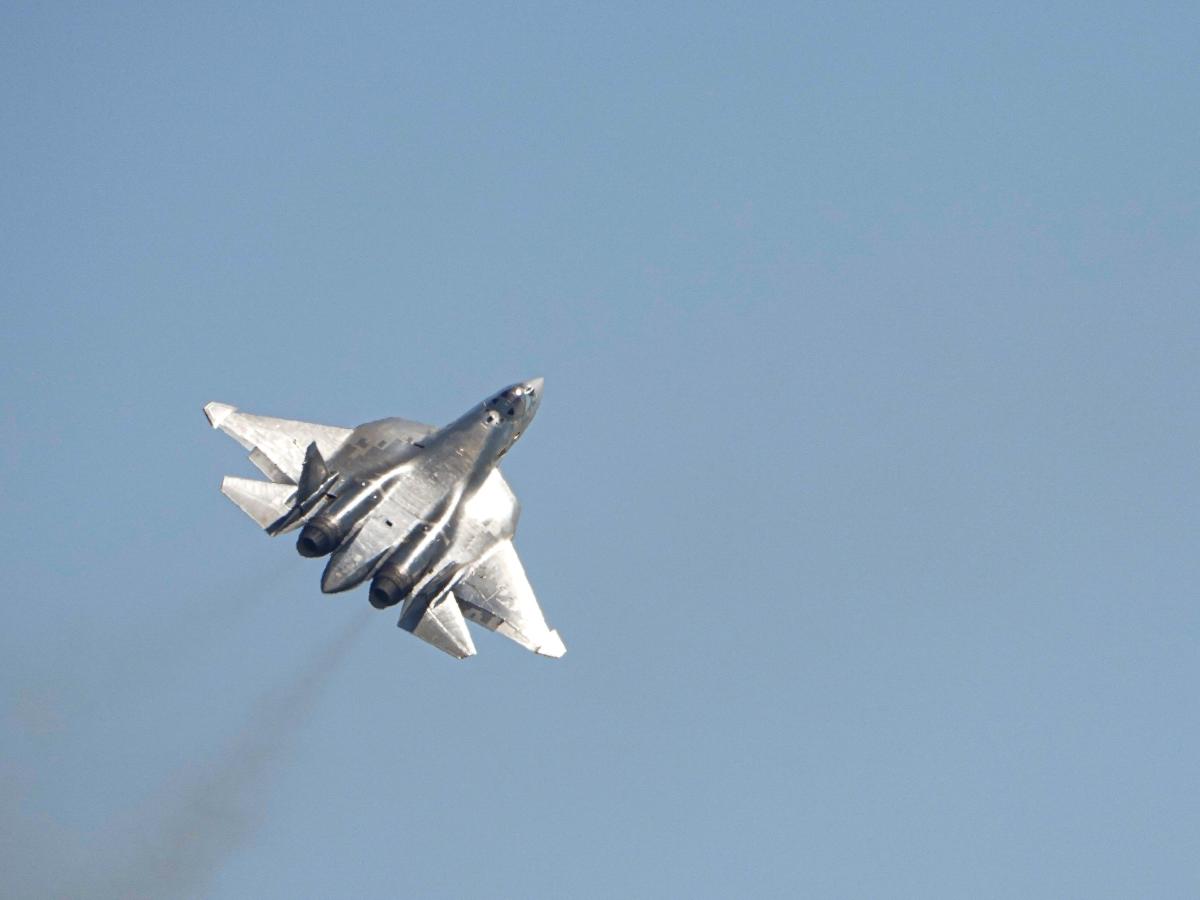
-
Western sanctions have impacted Russia’s production of Su-57 fighter jets, according to a research group.
-
Frontelligence Insight told The Telegraph that Russia can’t acquire some key components.
-
Russia has largely kept its Su-57s out of the war in Ukraine, fearing losses and reputational damage.
Western sanctions are threatening Russia’s production of its prized Su-57 fighter jet, according to a research group.
Frontelligence Insight, an open-source research group with suspected ties to the Ukrainian military, told The Telegraph that Russia could no longer legally acquire key components of its fifth-generation fighter jet because of Western sanctions.
Citing unspecified documents, it said the impacted components include the WA36 attenuator and the PLR7 60-12 and EA-PS 3150 power supplies, which are part of a German-made radar device used on the Su-57.
“It’s clear that Russia’s military industry heavily depends on Western components, particularly in electronics,” it said, adding that sanctions have put Russia’s Su-57 production “in jeopardy.”
Bryden Spurling, a senior research leader with RAND Europe, who focuses on defense and security, made a similar assessment.
“There’s no question that Western sanctions are having an impact on Russia’s ability to generate its most sophisticated military systems,” Spurling told BI.
He added that a fifth-generation aircraft like the Su-57 should, in theory, give Russia “greater” situational awareness and more opportunities to penetrate Ukraine’s airspace successfully, but that we have so far not seen much evidence of that.
“That is an indicator that Russia is reluctant to risk the few Su-57s it has,” he said, adding that the aircraft’s impact on the war in Ukraine has so far been “negligible” and that’s likely to remain the case for the “foreseeable future.”
The Su-57 — known by NATO as ‘Felon’ — was delivered to Moscow’s military in 2020, but there is only a very small number in its arsenal, and it has largely been missing from combat in Ukraine.
The jet was built to rival the fifth-generation fighter jets of other countries, including the US’ F-22 and F-35, which generally feature stealth technologies, are highly maneuverable, and have the latest sensors and weaponry.
But Russia has mostly relied on fourth-generation aircraft, like the Su-30, Su-35, and Su-27, which are upgraded designs on planes dating back to the 1980s.
According to a 2023 intelligence update from the UK Ministry of Defence, Russia’s reluctance to deploy Su-57s over Ukraine suggests it’s eager to avoid reputational damage, the loss of sensitive technologies, and reduced export prospects that could occur if some were shot down.
Ukraine said it damaged one Su-57 in a long-range strike in June in the Astrakhan region of southern Russia, 360 miles from the front line.
That strike was a “significant symbolic blow” to Moscow’s “long-troubled” Su-57 program, according to Justin Bronk, an airpower and technology expert at the UK’s Royal United Services Institute think tank — but not one with a direct effect on the war.
Echoing Frontelligence Insight’s assessment, he wrote that sanctions had complicated Russia’s efforts to source the avionics and micro-electronics that are essential components of the Su-57’s cockpit.
Western sanctions and the war in Ukraine have damaged Russia’s economy, but their exact impact is difficult to quantify.
In an op-ed for Project Syndicate earlier this month, Anders Åslund, a Swedish economist, said that Western sanctions could be knocking off as much as 3% of Russia’s GDP each year, which he estimated to be the equivalent of $56.4 billion a year.
Alexandra Prokopenko, a Carnegie Russia Eurasia Center fellow, meanwhile, wrote in the Financial Times this week that Russia’s plan to ramp up its defense spending was forcing Putin to face an “unsolvable trilemma” of simultaneously maintaining a balanced financial system, meeting social obligations, and sustaining defense spending at current levels.
But Jay Zagorsky, an economist and markets professor at Boston University’s Questrom School of Business, had a different take.
He told BI last month that Russia’s hefty military budget supports its sagging economy and that the invasion of Ukraine was likely the only thing keeping Russia from slipping into a recession.
“If there was no war, oh yes, I think there’d be an immediate recession,” he added.
Read the original article on Business Insider
EMEA Tribune is not involved in this news article, it is taken from our partners and or from the News Agencies. Copyright and Credit go to the News Agencies, email news@emeatribune.com Follow our WhatsApp verified Channel



